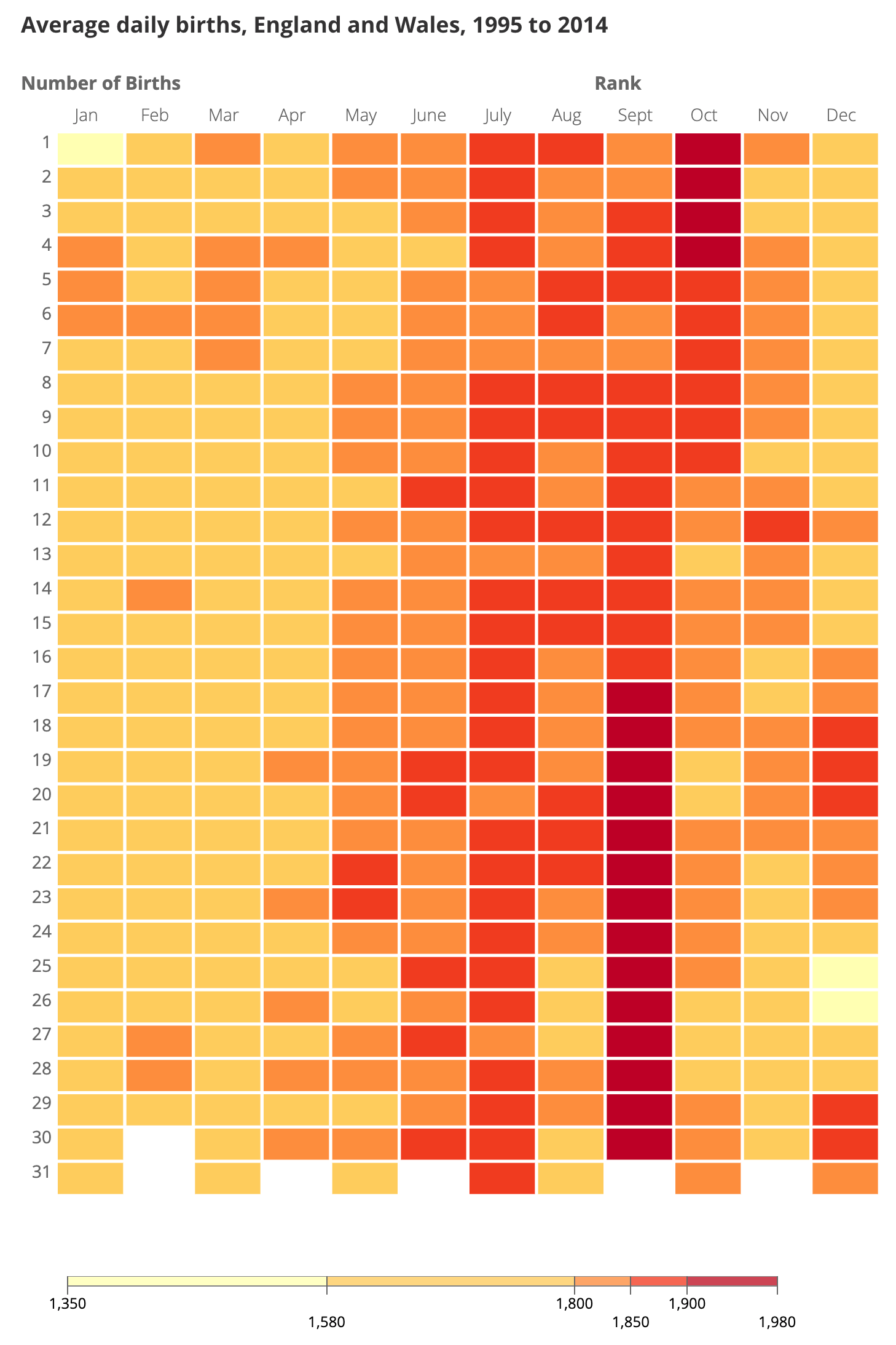As soon as you learn that you’re expecting, you’ll begin to think about a lot of things. For many, their first thought may be about the date their baby will arrive but when might this be?
Commonly called a ‘due date’, the day of your expected arrival can begin to sound a lot like an appointment. It helps to think of it as an estimate.
When is your due date?
Still not sure when your due date might be? Visit the NHS pregnancy due date calculator to calculate your due date.
Popular opinion dictates that a pregnancy will last nine months, which is 40 weeks pregnant or 280 days. However, counting the number of days from conception to birth is wildly inaccurate as only 4% of births will arrive on their estimated due date, less than 1-in-20.
It’s sensible to work towards a range, which is normally between 37 weeks and 42 weeks, which is when over 90% of women will give birth.
What is the most common birthday?
Now you are perhaps more familiar with what to aim for, what about the big day itself?
In December 2015, the Office for National Statistics (ONS) released statistics on the most popular birthdays in England & Wales.
Ranking birth dates in order of popularity, from 1 to 366, not surprisingly 29 February was dead last as it only occurs every four years. At the other end of the scale, number 1 was 26 September, the most popular day of birth between 1995 and 2014. They also point out that it falls 39 weeks and 2 days after Christmas Day, so make of that what you will.
September is the busiest month for birthdays
But, perhaps they are onto something? Eight of the Top 10 dates of birth were towards the end of September, with the other 2 being in early October.
The ONS argue this could be due to couples planning for children to be born near the beginning of the British school year in September, making them amongst the oldest pupils in their class, which some would consider an advantage. A child born on 1 September has a whole year longer to learn before starting school when compared to a child born on 31 August.
And, whilst the festive period proves to be fairly fertile, the same can not be said for births, with 6 of the 10 least popular birth dates falling between the Christmas and New Year period. Maybe it’s the fear of doubling up on presents!
One born every minute
And, finally, between 1995-2014, there were 8 days when 1,440 babies were born, which is the same as the number of minutes in a day, a nice coincidence which lends credence to the popular phrase “one born every minute”.
The real number is closer to one born every 48 seconds. If births were evenly distributed through the year, we could expect on average 1,800 births each day. The average for 26 September, the ‘most popular’ day to be born is around 2,000.
Request a Welcome Pack
Find out more about cord blood banking by downloading a Welcome Pack now.









